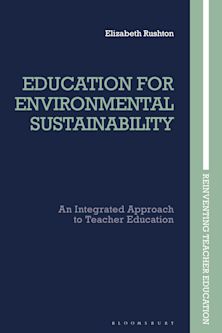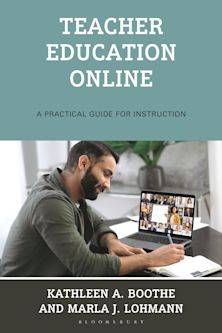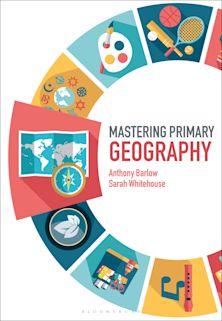- Home
- ACADEMIC
- Education
- Teacher Education
- Identity, Culture and Belonging
Identity, Culture and Belonging
Educating Young Children for a Changing World
Identity, Culture and Belonging
Educating Young Children for a Changing World
You must sign in to add this item to your wishlist. Please sign in or create an account
Description
Tony Eaude argues that the foundations of a robust but flexible identity are formed in early childhood and that children live within many intersecting and sometimes conflicting cultures. He considers three meanings of culture, associated with (often implicit) values and beliefs; the arts; and spaces for growth. In exploring how young children's identities, as constructed and constantly changing narratives, are shaped, he discusses controversial, intersecting factors related to power in terms of race/ethnicity, gender, religion, class, physical ability and age.
Eaude explores how young children learn, often tacitly, highlighting reciprocity, example, habituation and children's agency and voice. He emphasises the importance of a sense of belonging, created through trusting relationships, and inclusive environments, with adults drawing on and extending children's cultural capital and 'funds of knowledge.' Eaude shows how a holistic education requires a breadth of opportunities across and beyond the school curriculum, and highlights how play, the humanities and the arts enable children to explore how it is to be human, and to become more humane, broadening horizons and helping challenge preconceptions and stereotypes. This radical, inclusive and culturally sensitive vision, for an international audience, challenges many current assumptions about identity, culture, childhood and education.
Table of Contents
Introduction
Part I: Identity and Culture in a World of Uncertainty
1. Exploring Identity and Culture
2. Thinking Through the Intersections of Identity and Culture
3. Understanding the Changing Social, Cultural and Educational Landscape
Part II: How Young Children's Identities are Shaped
4. Constructing Identities
5. Exercising Agency, Creativity and Imagination
6. Belonging and Participating in Inclusive Environments
Part III: The Implications for Adults
7. Working Towards a Holistic Approach
8. Considering the Implications for Those Outside Schools
9. Reviewing the Implications for Schools and Teachers
Conclusion
Glossary
Bibliography
Index
Product details

| Published | 20 Feb 2020 |
|---|---|
| Format | Ebook (Epub & Mobi) |
| Edition | 1st |
| Extent | 240 |
| ISBN | 9781350097827 |
| Imprint | Bloomsbury Academic |
| Illustrations | 10 bw illus |
| Publisher | Bloomsbury Publishing |
About the contributors
Reviews
-
The sheer sweep of the coverage is certainly impressive ... A carefully constructed text, drawing incisively on a wealth of literature and enhanced by the personal voice of an author with a substantial career in teaching behind him. It also has the virtue of offering us an enlightened vision of what education can be about, culturally sensitive and inclusive in ethos.
Education 3-13
-
Essential reading ... Eaude's careful presentation of issues facing children is staggering.
International Journal of Children's Spirituality
-
[An] insightful discussion of the roles that gender, class, and race play in shaping young children's identities.
Religious Education
-
An insightful discussion of the roles gender, class, and race play in shaping identity and how adults can best support all children as they grow and learn. Eaude's education model rooted in virtue ethics is a timely response to anxieties about preparing students to live in a diverse world.
Karen-Marie Yust, Rowe Professor of Christian Education, Union Presbyterian Seminary, USA
-
In an increasingly changing and uncertain world in which people's identities are constructed and fluid, Tony Eaude's book is essential reading for anyone who works and interacts with children.
Brendan Hyde, Associate Professor, BBI - Australian Institute of Theological Education, Australia
-
In an era when identity and culture have become so important in schools and wider society it is extremely good to find a text that addresses these issues in a thoughtful, articulate and positive way as well as considering some of the practical implications for teachers. This is a text that we should welcome.
Mark Brundrett, Professor of Education, Liverpool John Moores University, UK

ONLINE RESOURCES
Bloomsbury Collections
This book is available on Bloomsbury Collections where your library has access.



































